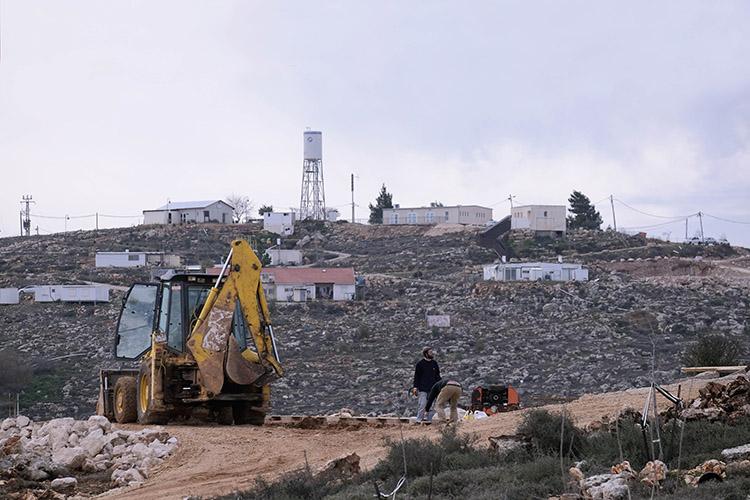
On the 6th of February, late in the evening, the Israeli Knesset passed a bill 60-52 termed the “Regularization Law” or ‘expropriation bill’. The bill retroactively legalises some 4,000 homes in 16 Israeli settlements in Area C of the West Bank that are on private Palestinian land. According to the bill, the land on which the residencies are built will remain that of the legal owner, but their usage will be expropriated by the State. Compensation will also be made to landowners, regardless of whether Palestinian landowners wish to sell or not.
This bill follows a recent surge in approval of settlement construction, with Prime Minister Netanyahu announcing the approval of immediate construction of 300 housing units in the West Bank settlement of Beit El, as well as moving forward with the planning of 500 new housing units in Jewish neighbourhoods in East Jerusalem over the past couple of months.
The expropriation bill has been so controversial that a number of peak Australian Jewish bodies and organisations have publicly condemned and denounced it. The youth group Hashomer Hatzair released a statement the day following the passing of the bill, in which they denounced the bill and stated: “We are ashamed and disgraced by these actions, which will inevitably strengthen the illegal and unethical occupation of the West Bank. The act of expropriating Palestinian land only adds to the wider institutionalised injustices faced by these people at the hands of the far right Israeli government. The very nature of creating two different sets of laws for different peoples violates the basic principles of democracy.” The statement was also supported by Habonim.
In an apparent shift in Australian Jewish sentiment towards Israel, AIJAC and ECAJ also released statements condemning the bill. Although the status quo likes to portray Australian Jewry as strongly unified in its Zionist sentiments and support of Israel, to the extent where any criticism of Israel is strongly decried and made to be marginalised, perhaps this time the Israeli government has pushed it too far. Or perhaps there is a shift in the political landscape of Australian Jewish communities and their relationship to Israel.
Whilst we agree with and commend the condemnation of the Regularization Law by AIJAC and ECAJ, both of these bodies also expressed very clearly that this condemnation in no way suggested that Israel’s policy of settlements in the occupied territories are the key barriers to peace. AIJAC clearly wrote: “The biggest barrier to peace at the moment is the Palestinian refusal to negotiate.” ECAJ echoed the same sentiments claiming that the bill will serve to “feed(ing) the false narrative that settlements are the primary reason for the absence of peace and will provide the Palestinians a further excuse to keep avoiding a return to direct negotiations with Israel.” In essence these statements condemn the extreme aspects of settlement activity whilst maintaining that settlements aren’t in fact a key issue in the conflict. More alarmingly, they place the inability to achieve peace directly on the Palestinian refusal to negotiate. In the most recent context of the Middle East peace talks in Paris, Netanyahu was very clear in his refusal to participate in these negotiations. The Prime Minister has on numerous occasions showed his lack of willingness to engage in peace negotiations, including his pre-election promise that if elected there would be no Palestinian state. Polls of Israeli citizens indicate that many have lost faith in the Netanyahu government’s intention of negotiations.
Downplaying the role that settlements play as an obstacle to peace, AIJAC make the claim that they comprise 2% of the land in Israel. This fact ignores the reality that almost 10% of the West Bank is included in the jurisdiction of the settlements municipal area, as well as an additional 34% or so of the West Bank which is under the jurisdiction of the settlements’ “Regional Councils,” all of which is off limits to Palestinians. [1] On top of this, Israel has taken hundreds of kilometres of the West Bank to build roads that access the settlements which further divides the West Bank and restrains the movement of Palestinians throughout the West Bank, and exacerbates the violence and militarisation in the West Bank.
We should not issue condemnations of Israel’s more extreme policies while continuing to downplay Israel’s role in the ongoing violence and tension. The bill should be condemned for the brazen continuation of Israeli policy of occupation and settlement expansion which appropriates Palestinian land, dispossess Palestinians from their land and has in effect abandoned a negotiated two state solution which organisations like ECAJ and AIJAC are quick to blame the Palestinians for.
[1] https://peacenow.org/page.php?name=tsws-settlements-are-not-an-obstacle-to-peace#.WKGHFm997IV
